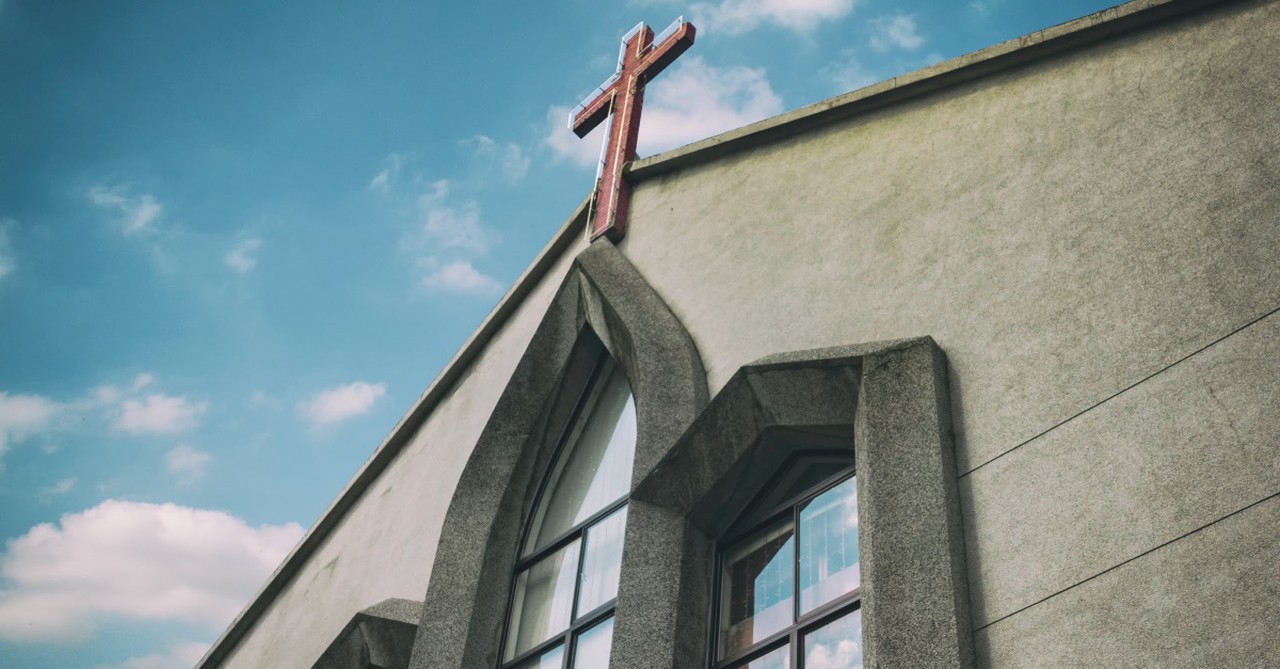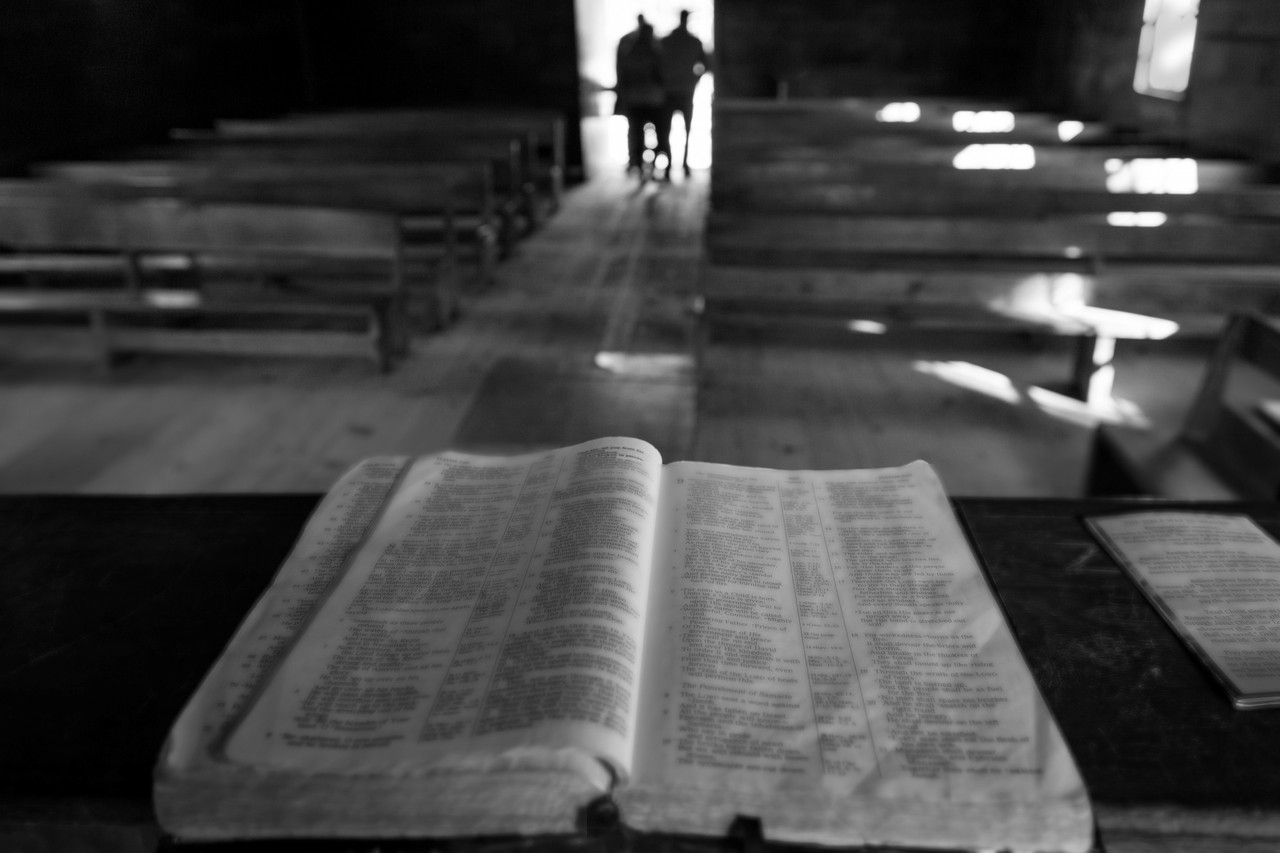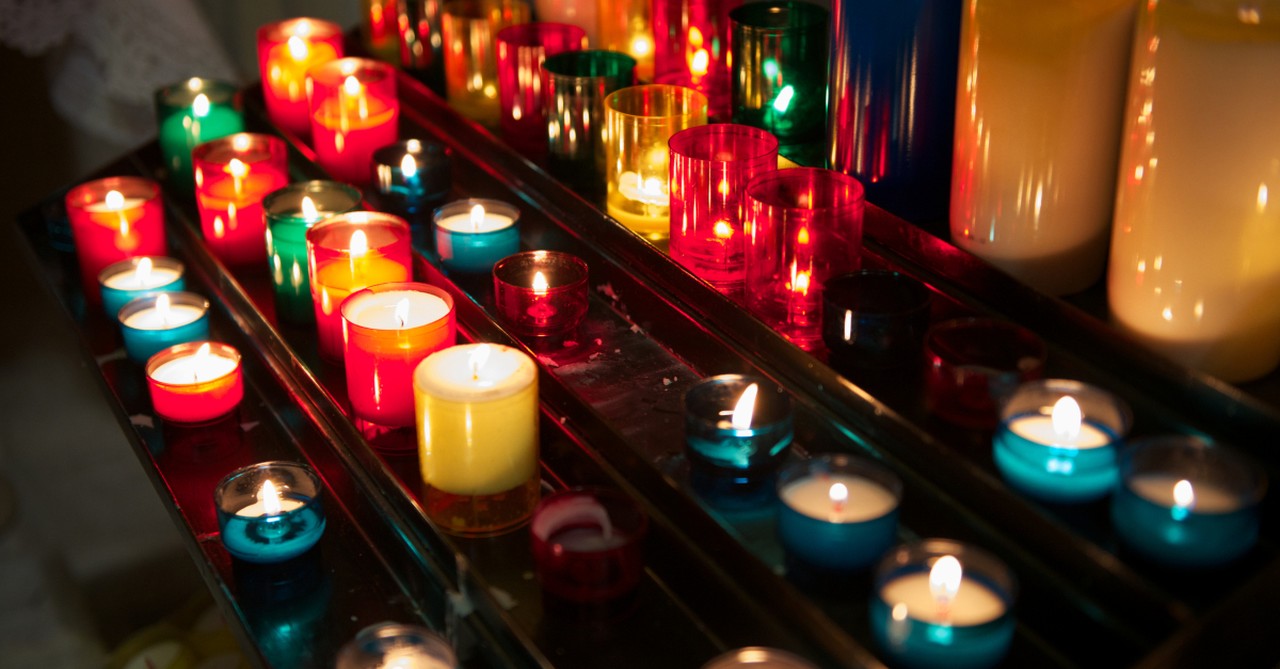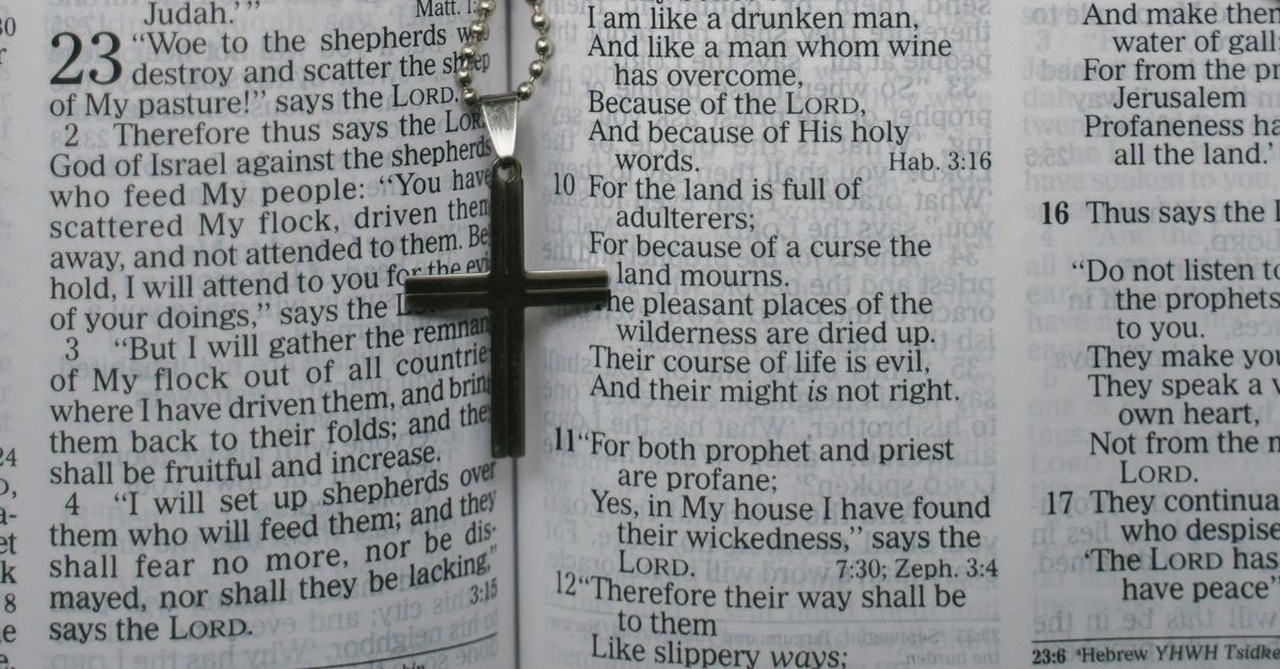5 Major Differences between Reformation Day and Halloween

Reformation Day and Halloween are celebrated on the same day, October 31st. “Reformation Day celebrates Martin Luther’s nailing his ninety-five theses to the church door at Wittenberg, Germany on October 31, 1517.” Meanwhile, Halloween is the antithesis of Christian celebration, a day originating in Pagan beliefs where participants celebrate darkness instead of light and death instead of life. While not a formal celebration or a public holiday, Americans pour time and money into Halloween revelry while seldom considering the implications of Reformation Day in their lives today. Here are five major differences between Reformation Day and Halloween.
Photo Credit: Daniel Tseng/Unsplash
1. Spooky Spending vs. Spiritual Revival

1. Spooky Spending vs. Spiritual Revival
SLIDE 1 OF 5
Americans spent over $12B dollars on candy, costumes, and decorations in 2023. Spending habits were slightly lower in the preceding few years, although some of the recent surge is related to inflation.
Casual comparison of retail shelves now as compared with a decade ago reveals a wider variety of creative ways to decorate the home, inside and out. Some items are even borrowed from other holidays, such as spooky advent calendars and “Christmas” trees decked out in skeletons. Many consumers slowly drive, cycle, or walk through residential neighborhoods to admire the increasingly lavish displays of tombstones, skeletons, and familiar characters given a Halloween makeover.
Perhaps Halloween has grown in popularity in recent years as a means of escape. Disguises, parties, food, and the supernatural all provide a distraction from America’s precarious political and financial landscape, not to mention the emotional pressures of everyday life. Certainly, this “holiday” appears to have grown in both popularity and profitability.
Reformation Day celebrates the fact that Christians in America no longer pay the church for “indulgences.” Justin Holcombe explained that, until Luther started the Reformation, “spiritually earnest people were told to justify themselves by charitable works, pilgrimages, and all kinds of religious performances and devotions. They were encouraged to acquire this ‘merit,’ which was at the disposal of the church, by purchasing certificates of indulgence.” Although changes were not immediate, Luther’s 95 theses started a movement that would do the opposite of Halloween - stop people from spending money for privileges the church had no business trying to sell.
Church corruption, aided by the inability of most people to read Latin (or to read at all), led to believers faithfully spending their money to try and buy their way into heaven. They thought they could even pay for a loved one to be removed from purgatory into heaven. The Bible teaches that Christ alone has paid the price for redemption. Paul wrote, “By grace you have been saved through faith.” (Ephesians 2:8)
Photo Credit: ©iStock/Getty Images Plus/Panuwat Dangsungnoens
2. Luther’s Stand for Truth vs. Church Compromise

2. Luther’s Stand for Truth vs. Church Compromise
SLIDE 2 OF 5
David Mathis opines that “it’s likely no accident [Luther] picked October 31” for nailing his 95 theses to the church door at Wittenberg. The day had already become synonymous with pagan celebration and a Christian rebranding as All Hallow’s Eve. Derived from a Celtic tradition of hiding from Samhain, god of death and evil spirits, the church tried to redeem this date by turning it into a celebration of dead saints such as Saint Peter, Saint Paul, etc. Choosing October 31st was a symbolic action, stating that he and all reasonable Christians would worship the Living God only - no compromises.
In other words, even the Christianized version was another form of paganism. Rather than try to quash pagan beliefs entirely, the church compromised by changing the direction of their worship only slightly. The Church in Rome encouraged believers to revere the Virgin Mary and the Apostles: dead saints. They initiated special feasts and festivals in their honor.
Luther helped the everyday believer understand that “saints” are all those who believe in Christ alone for salvation. Therefore, there are many dead saints, and they are not to be worshiped or commemorated with money or special rituals. Justin Holcombe says it this way: “Spiritually oppressed by indulgences and not given assurance of God’s grace, Luther proclaimed free grace to God’s true saints.”
Photo Credit: ©Getty Images/ Marcia Straub
3. What Halloween Gets Wrong about Fear and Spiritual Darkness

3. What Halloween Gets Wrong about Fear and Spiritual Darkness
SLIDE 3 OF 5
Some ways to tackle fear are to avoid fearful things, to hide, or to wear a disguise. The ancient traditions of Halloween included wearing disguises to outsmart evil spirits. Giving candy became another way of warding off evil behavior, whether spiritual or mortal. In fact, not giving out candy (or giving out apples or toothbrushes) can be a little like not paying the mob for protection. Either way, fear is celebrated and exploited at Halloween. And with costumes on, would-be vandals and thieves can become extra cocky, though the vast majority of participants are simply ordinary citizens having fun.
Lots of people choose to stay indoors at Halloween because they dislike the confusion of so many obscured faces, plus gory and scary imagery of fake blood, fangs, and hockey-mask-wearing serial killers.
Yet, many people enjoy fear. They see Tarot Cards and seances as harmless. If one can laugh at the occult or employ it as a source of entertainment, then they think evil has no power. Jon Bloom advises that “it is a dangerous thing to underestimate the power of spiritual evil and to overestimate our ability to withstand it.”
There are real spiritual forces of darkness. Paul tells his readers that there are “cosmic powers over this present darkness, against the spiritual forces of evil.” (Ephesians 6:12). Jesus exorcised demons from individuals who tormented their victims spiritually, physically, and emotionally; these forces must not be taken lightly.
Then again, a Christian who truly believes in Christ Jesus for salvation and protection knows that Jesus’ power is greater than that of the Devil and that costumes and make-up are neither required nor effective for hiding from evil. The Reformation reminds us to fight fear by engaging the battle with Christ very personally in our midst, immediately accessible and powerful. Disguises are pointless - we wear Christ. He is our protection against eternal darkness, not against physical, temporary safety. Satan has no power to steal eternity from us.
Photo Credit: ©iStock/Getty Images Plus/Siarhei Kalesnikau
4. Superstition vs. Scripture

4. Superstition vs. Scripture
SLIDE 4 OF 5
“The fear of the Lord is the beginning of knowledge; fools despise wisdom and instruction.” (Proverbs 1:7) Halloween’s currency is superstitious fear and reverence of the dead, of darkness and dark spirits. These fears were passed down through Pagan cultures and perpetuated by the church in Rome for centuries. One thing that makes it easier to lead by fear is to keep people from having access to their primary source of truth, which is the Bible.
It is far easier to play on someone’s fears if they cannot read the truth. Unfortunately, the church had disguised and distorted the Gospel and could easily do so where most people did not read Latin, which was the language Rome chose for translating the original Greek and Hebrew. Illiteracy, in general, was widespread, even in the vernacular.
Thanks to the Reformation, the Bible was translated into regular German and then other languages. This phenomenon was rapid. If at least some could read, they could determine the truth of God’s Word for themselves and share it directly from the texts. They would recognize core teachings such as salvation by grace alone and not by good behavior, hard work, or payment. God wants us to read his Word; he promotes its value: “All Scripture is breathed out by God and profitable for teaching, for reproof, for correction, and for training in righteousness.” (2 Timothy 3:16) Psalm 119:11 proclaims, “I have stored up your word in my heart, so I might not sin against you.” Scripture is of immeasurable value as the story of God’s character, his will and purpose, our identity in him through Christ, and his plan for our salvation through Jesus.
Photo Credit: ©Getty Images/Benoit_R
5. You Don’t Need Mediums When You Have Christ

5. You Don’t Need Mediums When You Have Christ
SLIDE 5 OF 5
One popular attraction of Halloween for many people is the idea of contacting the spirits of loved ones or even random individuals who have passed away. Ghost hunting, sleeping in haunted houses, visiting psychics, seances, and other occult practices operate on the premise that if one finds the correct place, the right person, or the correct tool - the medium - they can hear from the dead.
Christians celebrate that their only medium to the heavenly realms is Jesus, who intercedes between believers and God - the Living God. David Mathis explains that Luther’s legacy continued for some time: “Years after Luther posted his theses, Calvin’s friend Nicolas Cop delivered an All Saints’ convocation heralding Christ as the sole mediator (not the ‘saints’). Some suspected this patently Protestant address was written by Calvin, and he soon found himself on the run.” There was too much at stake for the church to let this go easily.
Luther’s theses sparked many changes over many years within the church and throughout the communities church leaders misled and oppressed. The idea that one could enjoy a personal and immediate relationship with Jesus Christ and go to him directly to ask forgiveness or to pray for anything took away power and money from the priests and restored the focus of worship to the Savior. For Luther and his supporters, this was real danger - not made-up terrors.
The beauty of the Reformation is lost on societies founded on Christian values, few of which remember this date or observe it in any way. Joe Carter observes that “the only countries in which Reformation Day is a national holiday are Chile and Slovenia.” It is recognized by only seven states in Germany (16). One sad reality is that we forget a day that has had so much positive influence in society generally, promoting literacy and condemning corruption: the start of the Protestant Church. They are, however, happy to spend $12B on Halloween.
Do you recognize either of these holidays? Comment and share your thoughts and testimony at Crosswalk Forums! Click HERE.
Sources
https://publicholidays.de/reformation-day/
https://thegoodnewstoday.org/the-connection-between-halloween-reformation-day/
https://www.thegospelcoalition.org/article/9-things-you-should-know-about-halloween-and-reformation-day-2/
https://www.desiringgod.org/articles/do-not-underestimate-a-defeated-devil
https://www.desiringgod.org/articles/the-reformation-trick-or-treat
Photo Credit: ©Pexels/Tima Miroshnichenko


Originally published October 31, 2024.









